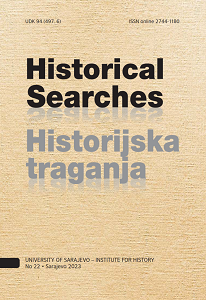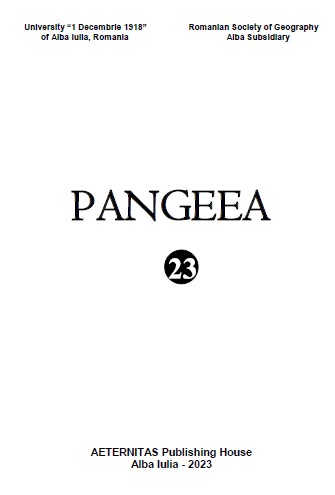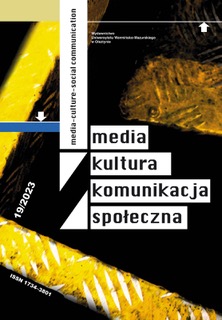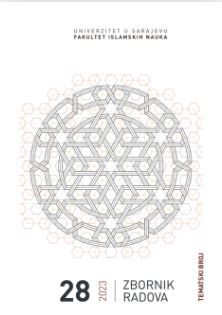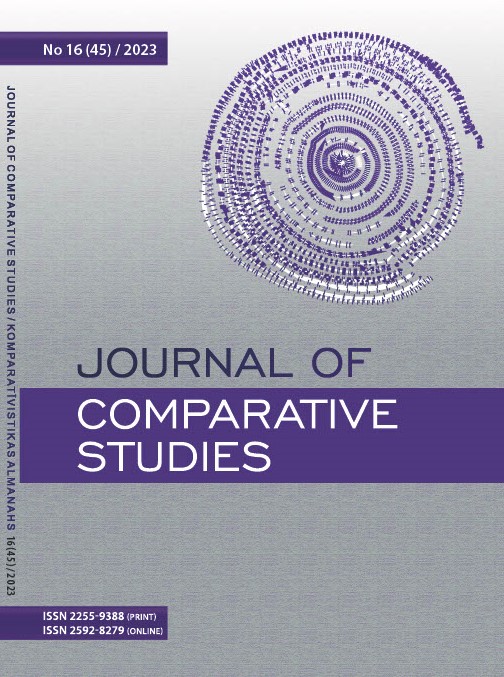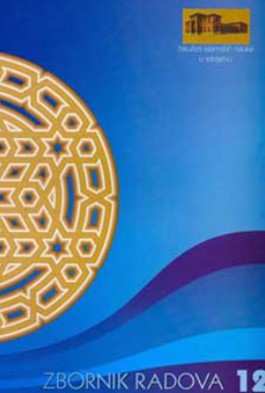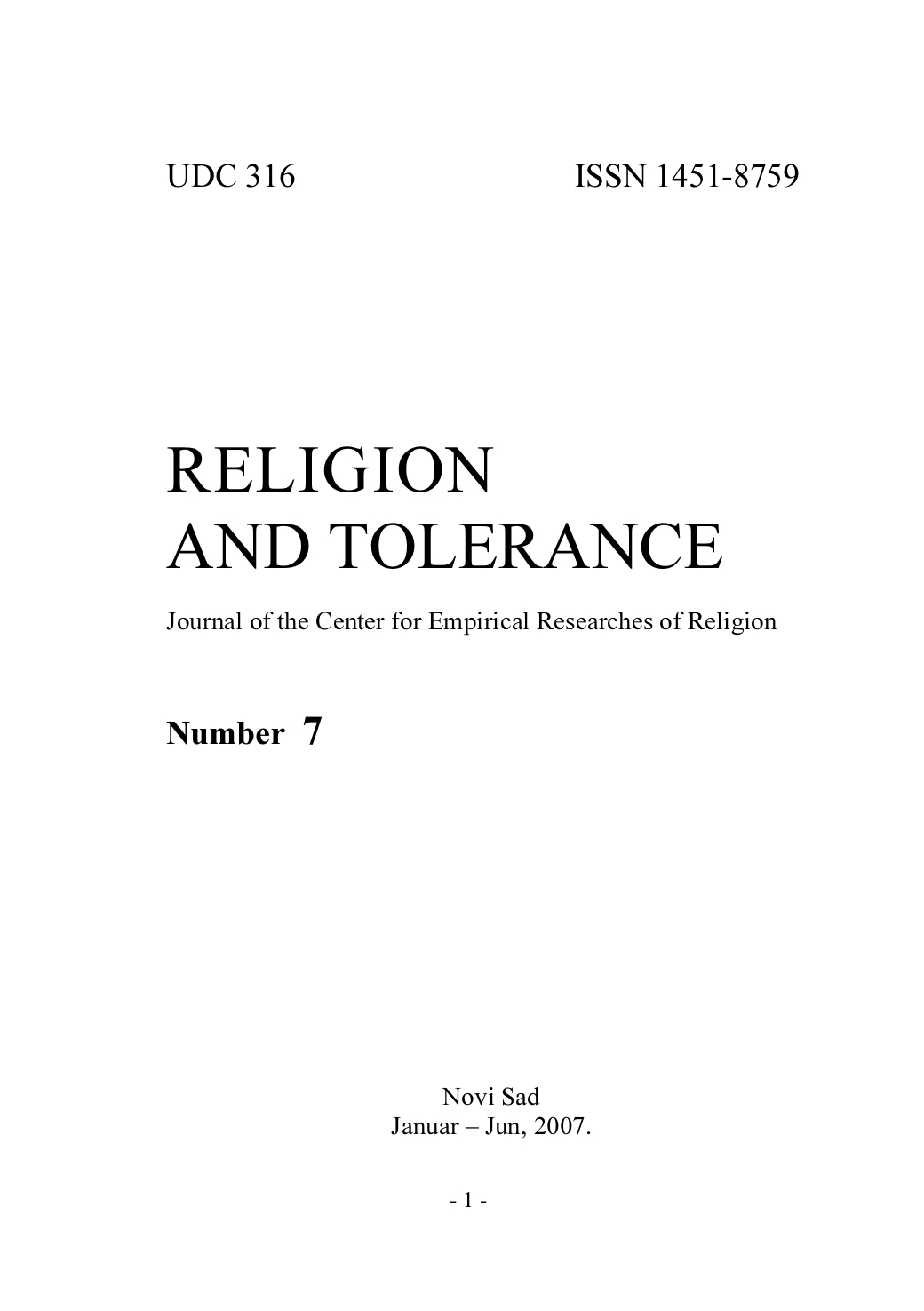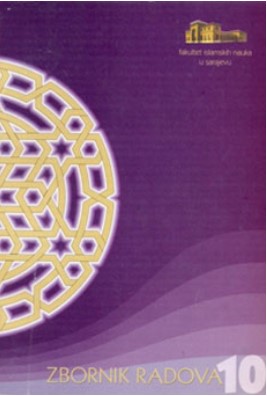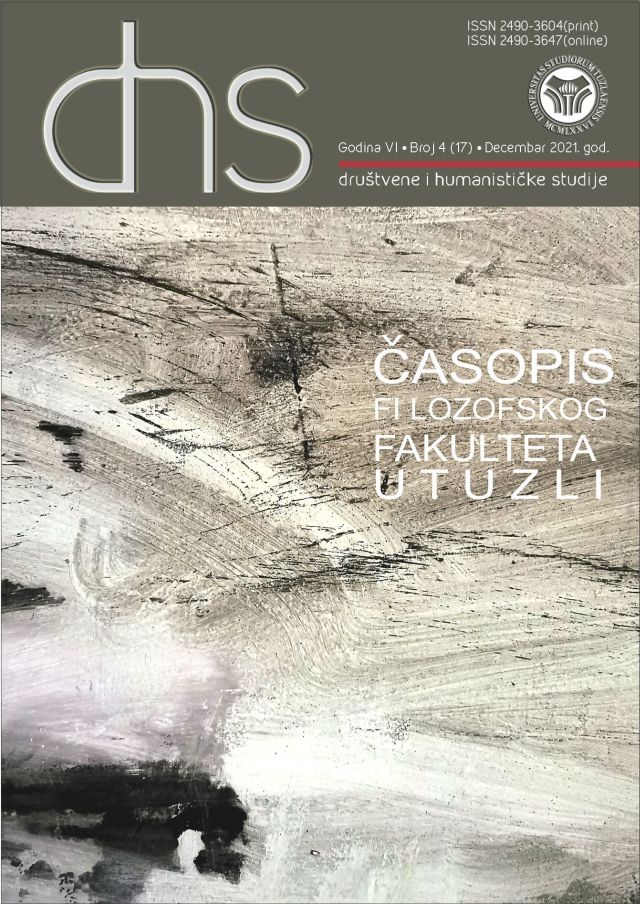
Akademski glas sa margine o epohalnim dilemama koje sudbinski dijelimo
The Centre for Culture and Education "Logos" in cooperation with the Institute for Religious and Social Research and the Faculty of Philosophy of the University of Tuzla organized a scientific conference: "Religion, Politics, Secularism" on the 2nd and 3rd October 2020., with the participation of scientists from Bosnia and Herzegovina (B&H), Croatia and Serbia. The consideration of the historical connection between religion and politics, through the meaningful understanding of secularization, contextualizes on the margins of the modern era where one can read the meaning and significance of the historical destiny of B&H and its social, religious, confessional, national, and cultural subjects. From eleven contributions from this scientific conference, only one of them (Tadic, Sljivo 2020) explicitly, and three of them implicitly (Krivak 2020, Pešić 2020, Hodžić 2020) contextualize the subject of their studies in the narrow framework of the given theme: "Religion, Politics, Secularism". The other seven contributions, although theoretically and methodologically outside of the (self)referenced, consciousepochal relationship of religion, politics, and secularization, illuminate the aspects of the problems in the question in their own way, and sometimes from a quite unexpected angle
More...
